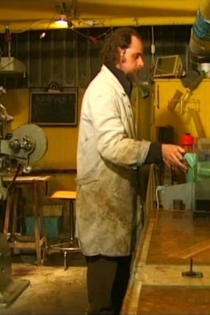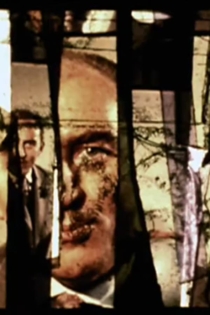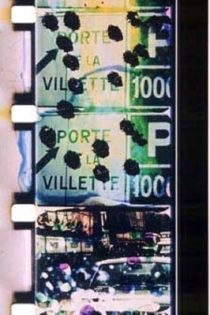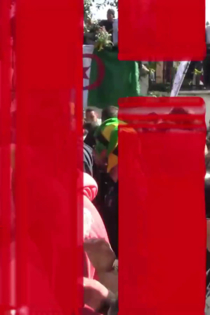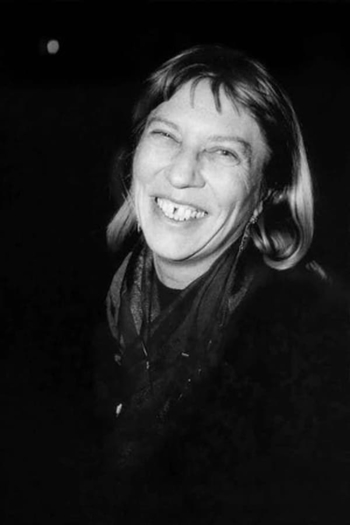
Frédérique Devaux
1956 (70 лет)Cinématon
Gérard Courant
Gérard Courant, Alain-Alcide Sudre
Cinématon is a 156-hour long experimental film by French director Gérard Courant. It was the longest film ever released until 2011. Composed over 36 years from 1978 until 2006, it consists of a series of over 2,821 silent vignettes (cinématons), each 3 minutes and 25 seconds long, of various celebrities, artists, journalists and friends of the director, each doing whatever they want for the allotted time. Subjects of the film include directors Barbet Schroeder, Nagisa Oshima, Volker Schlöndorff, Ken Loach, Benjamin Cuq, Youssef Chahine, Wim Wenders, Joseph Losey, Jean-Luc Godard, Samuel Fuller and Terry Gilliam, chess grandmaster Joël Lautier, and actors Roberto Benigni, Stéphane Audran, Julie Delpy and Lesley Chatterley. Gilliam is featured eating a 100-franc note, while Fuller smokes a cigar. Courant's favourite subject was a 7-month-old baby. The film was screened in its then-entirety in Avignon in November 2009 and was screened in Redondo Beach, CA on April 9, 2010.
Cinématon

Les deux Lucy
Frédérique Devaux, Michel Amarger
Raphaël Bassan, Anne-Sophie Brabant
Les Deux Lucy is a short documentary portrait of the shooting of Raphaël Bassan's film Lucy en miroir. It's the opportunity for us to look at one of our contemporary filmmakers and important film critics of what we call in French cinémas differents, meaning a different way of making films. Our making of offers the opportunity to follow, step by step, the making of this short film with scenes shot on the set, and to listen to comments by the filmmaker about his work.
Les deux Lucy

Cinexpérimentaux #9: Stephen Dwoskin
Frédérique Devaux, Michel Amarger
Stephen Dwoskin
Stephen Dwoskin was born in New York in 1939 and began making independent shorts there in 1961. In 1964 he followed his research work to London where he settled and participated in the founding of the London Filmmaker’s Co-op. His experimental films, for which he himself does the camera work, play with ideas of desire, sexual and mental solitude and the passage of time. In his films he also explores representation in cinema, performances, personal impressions and his own physical handicap which has been a source of inspiration for him throughout his career. His sensitive and emancipating works have been the subject of various international presentations.
Cinexpérimentaux #9: Stephen Dwoskin
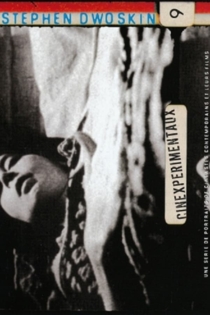
Cinexpérimentaux #7: Stéphane Marti
Frédérique Devaux, Michel Amarger
Stéphane Marti
Stéphane Marti is a teacher and film-maker who, since 1976, has been expounding the plasticity of experimental cinema, freeing it from the dominant codes of narrative cinema. An avid defender of Super-8mm film (which he has been using for 30 years), he has fought for the acknowledgement of its excellence as a film-making tool. His work, which screens in festivals and at international events, has been the subject of numerous interviews and articles. Flamboyant, baroque and sensual, his work revolves primarily around the question of the body and the sacred.
Cinexpérimentaux #7: Stéphane Marti

Marcel Hanoun, cinexperimentaux
Laurent Aït Benalla, Frédérique Devaux
Marcel Hanoun
Marcel Hanoun, one of the most innovative of filmmakers, gives us what he names "a lesson in cinema." Frederique Devaux and Michel Amarger filmed this piece at his country house, composing an abundantly rich portrait. Film clips and sparks of theoretic bravura testify to the feverish creativity and the drunken agitation behind which lurks the ever-composed voice of the filmmaker.
Cinexpérimentaux #6: Marcel Hanoun, A Lesson in Cinema
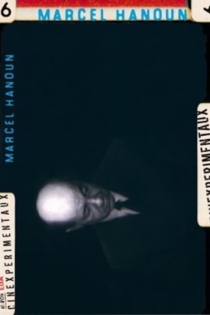
Logomagie
Frédérique Devaux
“Smashed up images, beginnings and ends of shots, interventions at different levels, reframings, various formats (8mm, Super 8, 16mm ...), blurred images, flashes of color and light. Crackling visions. Visions and derisions of the filmmaker’s life, filmed in Super-8 and embedded into banal 16mm images from Zorro or porn films. An illusion play of shots reworked on the optical printer. The sound, quieter, like another layer of memory, is filled with well-known songs. Something else thus unfolds in the contrapuntal contrast between picture and sound.” — Michel Amarger
Logomagie
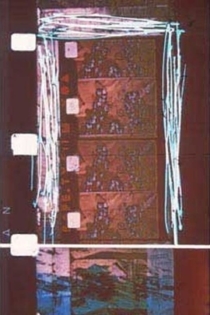
K (Rêves Berbères)
Frédérique Devaux
In this part, I'm dealing with the relationship of the Kabyles with the dream of elsewhere. To reach that aim, I shot a lot in Kabilye, and also in other countries. Through superimposition, the approach between the positive and the negative, tape-to-film work, a research into colour and some very tight editing in which I intercalate some articles about the kabyle cauldron, as well as other effects, I try to give shape to these visions of an elsewhere, that are passing, changeable, often false. While printing the film, I worked a lot on the diaphragm, going voluntarily from overexposure to underexposure, in order to render the blindness (that is the fever) and the ignorance of some populations about this elsewhere that they believe is an El Dorado.
K (Rêves Berbères)
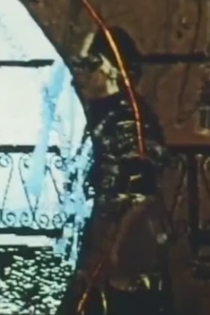
Cinexpérimentaux #4: Pip Chodorov
Frédérique Devaux, Michel Amarger
Pip Chodorov
Portrait, alternating interviews and extracted from Pip Chodorov's films who evokes its conception of the experimental movies, the links of some of his films with photography. Their character, sometimes improvised, sometimes composed. He’s and editor's activities of videocassettes Re: Voir.
Cinexpérimentaux #4: Pip Chodorov

K Exil
Frédérique Devaux
Two-thirds of K (Exil) consists of images of the women and children who remain at home, alone, while the men leave for a life of exile. These images, always fragmentary (either cut-up or inserted piece by piece within the image as a whole), alternating between negative and positive, complementing or contradicting each other - give an insight into the wrenching separation experienced by those members of the population who remain at home, left to their fate in an inhospitable landscape. Over what we call the 'joints', we will engrave words in French or Kabyle (Berber), echoing the masculine voices of Rachid Adel and Michel Amarger. An original composition by Mr. Djamel Tareb will form the musical sound-track for the film.
K Exil
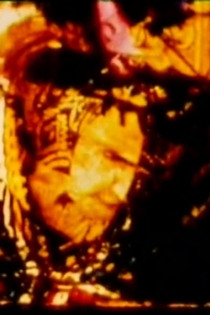
Cinexpérimentaux 5 : Rose Lowder
Frédérique Devaux, Michel Amarger
Rose Lowder
Rose Lowder is an artisan of cinema. Her 16mm camera takes the place of a loom for the weaving of images. She has consecrated her life to these tapestries, these embroideries whose motifs have for many years come from nature, in a state of incessant becoming. Like her elders, the Impressionist painters, she renders her bouquets stroke by stroke, image by image, color after color, to give life to her pointillist compositions in motion.
Cinexpérimentaux #5 : Rose Lowder
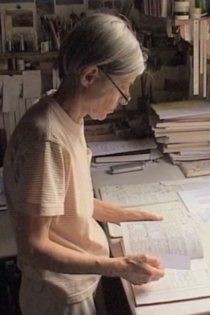
Cinexpérimentaux #3: Vivian Ostrovsky
Frédérique Devaux, Michel Amarger
Vivian Ostrovsky
Vivian Ostrovsky is a nomad film-maker, born in New York. Student in Brazil then in Paris, which takes its camera of continent in continent since 1980. Her work, in the border of the documentary and the experimental, touches the filmed journals and is interested in the individuals rather than in the masses, in the physical language, in the unusual of the situations and in the sensible editing of the images and the sounds.
Cinexpérimentaux #3: Vivian Ostrovsky

